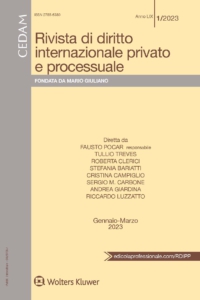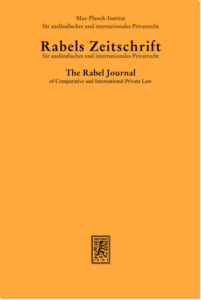HCCH Monthly Update: June 2023
Conventions & Instruments
On 23 June 2023, Paraguay deposited its instrument of accession to the 1965 Service Convention and the 1970 Evidence Convention. With the accession of Paraguay, the 1965 Service Convention now has 82 Contracting Parties. It will enter into force for Paraguay on 1 January 2024 subject to the Article 28 procedure. As for the 1970 Evidence Convention, with the accession of Paraguay it now has 66 Contracting Parties. It will enter into force for Paraguay on 22 August 2023. More information is available here.
Publications & Documentation
On 6 June 2023, the Permanent Bureau of the HCCH announced the publication of the Toolkit for Preventing and Addressing Illicit Practices in Intercountry Adoption. The Toolkit is intended to assist in the proper implementation and operation of the 1993 Adoption Convention, by providing practical guidelines on what must be done to identify, prevent, and address illicit practices and their enabling factors. More information is available here.
On 21 June 2023, the Permanent Bureau of the HCCH announced the publication of the HCCH’s Strategic Plan for 2023-2028. The Strategic Plan 2023-2028 outlines the mandate and mission of the HCCH, sets out the three strategic goals pursued by the Organisation to fulfil them, and enshrines the guiding principles behind all aspects of the HCCH’s operations. More information is available here. Read more


 On Tuesday, July 4, 2023, the
On Tuesday, July 4, 2023, the  Professor Dr. Giesela Rühl, LL.M. (Berkeley) is currently seeking to fill three PhD positions at her Chair at Humboldt University of Berlin ( https://www.rewi.hu-berlin.de/en/lf/ls/rhl/index.html).
Professor Dr. Giesela Rühl, LL.M. (Berkeley) is currently seeking to fill three PhD positions at her Chair at Humboldt University of Berlin ( https://www.rewi.hu-berlin.de/en/lf/ls/rhl/index.html). The latest issue of RabelsZ has just been released. It contains the following contributions:
The latest issue of RabelsZ has just been released. It contains the following contributions: